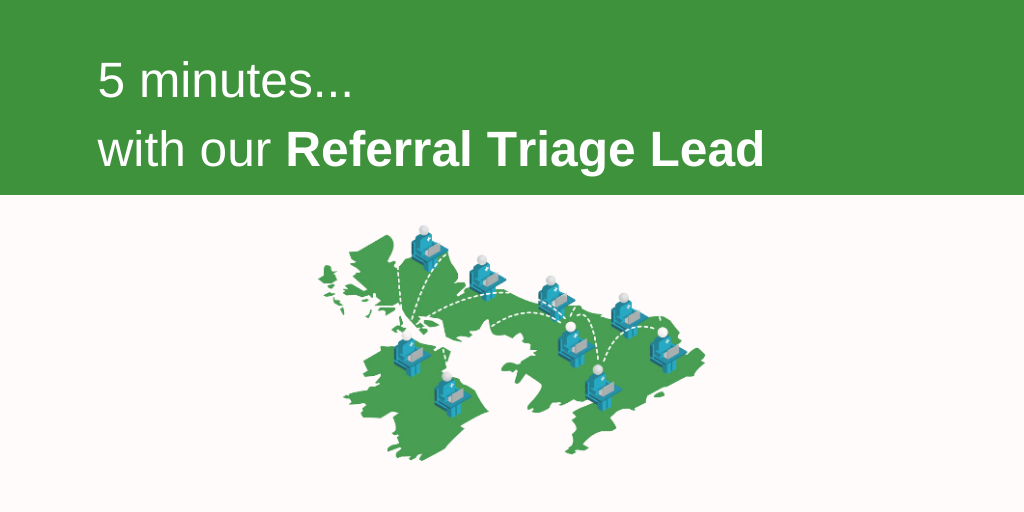Since 2020, Consultant Connect’s Referral Triage and Validation service has been supporting NHS Trusts needing additional temporary capacity to reduce waiting lists safely. By harnessing the clinical expertise of our National Consultant Network (NCN), the service enables referrals to be triaged and validated in bulk or as they are received, easing pressure on local teams.
We caught up with Grace Jackson, our Referral Triage Lead, to learn about the service’s evolution over the years and its ongoing impact on patients, clinicians, and the wider NHS.
Why is Referral Triage such a vital service offered by Consultant Connect?
‘Referral Triage and Validation is such an impactful service because it directly affects patient care in such a scalable way. It reduces pressures on NHS Trusts by using resources more effectively, allowing in-house consultants to hold clinics rather than spend valuable time on administrative tasks. This leads to fewer unnecessary hospital visits and provides GPs with better information to manage patients within primary care.
‘Our projects can be set up in a matter of hours. Once contractual agreements are complete and local systems are accessible, we can start triaging within 24-48 hours. There aren’t many other solutions that can turn things around so quickly, and I love being part of such an agile company.’
What impact does this work have on waiting lists?
‘The impact can be considerable. The average reduction in list size by specialty is shown below. In one dermatology project, we utilised our Patient Validation feature to contact patients before triage. Out of 1,500 patients, 8% confirmed they no longer required a referral. Removing those 120 patients from the waiting list saved around six days of clinical time for the dermatology team*.’
| Specialty | Average Reduction in Waiting List Size |
| ENT | 48% |
| Neurology | 43% |
| Cardiology | 41% |
| Dermatology | 34% |
| Gynaecology | 31% |
* Based on the calculation of 10 patients being seen in a half-day session, which is the average for a new dermatology patient appointment.
Can the service support with diagnostics?
‘Yes, and so much more. We began during the Covid pandemic with a traditional triage model – agreeing scope, extracting referrals, triaging, and re-uploading them. Today, the service is far more flexible and tailored. We can:
- Report on diagnostics when needed.
- Send letters to GPs and patients.
- Send patient text messages requesting further information or images.
These enhancements not only refine pathways but also make the service completely customisable for each client.’
The NCN consultants act as part of a local team. How does that work in practice?
‘Our NCN consultants follow local pathways and protocols under the guidance of local clinical leads. At the start of a new project, the Trust double-checks the first referrals to ensure alignment with local preferences.
‘The NCN consultants function like virtual locums and maintain direct lines of communication with the local team for maximum efficiency and transparency.’
Many Trusts already run a Referral Assessment Service (RAS). How does the Referral Triage and Validation service add value?
‘We can free up the clinician who oversees or triages so they can focus on seeing patients. Most RAS services focus on a “quick scan” initial triage to identify urgent and cancer cases. Our
‘Our consultants’ approach is much more in-depth. They often identify patients who can be safely managed in primary care, and they have the time to write detailed management plans, ensuring GPs are fully supported.’
Can you contact the patient to ensure they still need/want to be seen?
‘Absolutely. This is increasingly popular with our clients, especially within pathways where updated patient imagery can help inform future clinical decision-making.’
What operational changes have occurred since the inception of the Referral Triage and Validation service?
‘Referral Triage has evolved into an agile, data-driven service. It’s no longer just a filter; it adapts to demand, improves flow, and ensures patients are placed in the right care setting faster.
‘We’ve expanded the service to be rich in data. For example, we can now evaluate:
- Patient appetite for new local services, e.g., community clinics.
- Image quality by GP practice, e.g., in dermatology referrals.
This helps Trusts refine pathways, redistribute capacity, and identify inefficiencies.
‘Over the last five years, the Referral Triage Team at Consultant Connect has become skilled at balancing multiple projects and predicting the unpredictable. While none of us come from a purely clinical background, we’ve become proficient at working with service managers and clinical leads to shape pathways and maximise benefits for clients.’
For more information, please visit our Referral Triage landing page, email hello@consultantconnect.org.uk or call us on 01865 951207.
Related Blog Articles:
